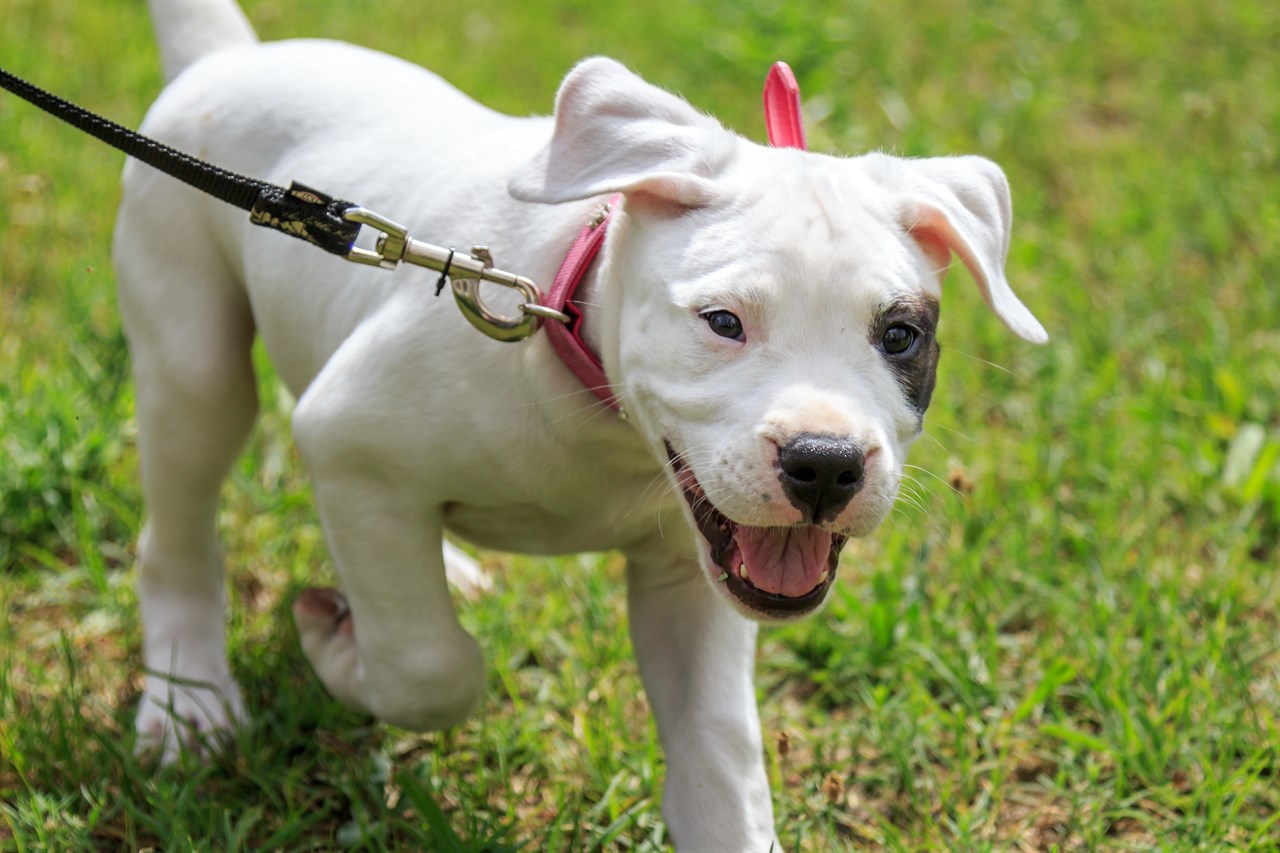Beneath the Regal Exterior: Understanding the Barking Habits of the Dogo Argentino

The Dogo Argentino, with its dignified presence, is not known for excessive barking. While each dog is an individual with unique behaviours, the breed as a whole tends to be moderate in their vocalisations. Understanding the factors that influence their barking habits can help owners foster a harmonious living environment.
Guardian Instincts
Dogo Argentinos have strong guardian instincts. Their protective nature may lead to barking when they perceive a potential threat. This can make them excellent watchdogs, alerting their owners to the presence of strangers or unusual activities.
Territorial Behaviour
The breed's territorial instincts may also contribute to barking. Dogo Argentinos often form strong attachments to their homes and families, and any perceived encroachment on their territory may trigger barking.
Communication
Like all dogs, Dogo Argentinos use barking as a form of communication. They may bark to express excitement, happiness, or to get attention. Understanding the context and accompanying body language can provide insights into the reason behind their vocalisations.
Training and Socialisation
Proper training and socialisation play crucial roles in managing barking habits. Early exposure to various people, animals, and environments helps Dogo Argentinos distinguish between normal, non-threatening situations and those that warrant alertness.
Attention-Seeking Behaviour
Dogo Argentinos are known for their loyalty to their families. In some cases, barking may be a means of seeking attention or expressing a desire for interaction. Ensuring that the dog receives sufficient mental and physical stimulation can help mitigate attention-seeking behaviours.
Preventing Nuisance Barking
To manage barking, it's essential to address the underlying causes. Regular exercise, mental stimulation through play and training, and providing a comfortable environment can contribute to a balanced and content Dogo Argentino, reducing the likelihood of nuisance barking.
Responding to Excessive Barking
If a Dogo Argentino displays excessive or persistent barking, it's crucial to address the issue calmly and consistently. Identifying the trigger and redirecting their focus through training can be effective. Positive reinforcement for quiet behaviour can also help shape their responses.
Professional Guidance
For owners facing challenges in managing their Dogo Argentino's barking, seeking professional guidance from a dog trainer or behaviourist can be beneficial. They can provide personalised advice and training techniques to address specific concerns.
In summary, while Dogo Argentinos are not typically known for incessant barking, individual variations exist. Understanding the reasons behind their vocalisations and addressing any underlying issues through training and positive reinforcement can foster a peaceful coexistence between these majestic dogs and their families.
Dogo Argentino puppies for sale
- Find Dogo Argentino puppies for sale in ACT
- Find Dogo Argentino puppies for sale in NSW
- Find Dogo Argentino puppies for sale in NT
- Find Dogo Argentino puppies for sale in QLD
- Find Dogo Argentino puppies for sale in SA
- Find Dogo Argentino puppies for sale in TAS
- Find Dogo Argentino puppies for sale in VIC
- Find Dogo Argentino puppies for sale in WA